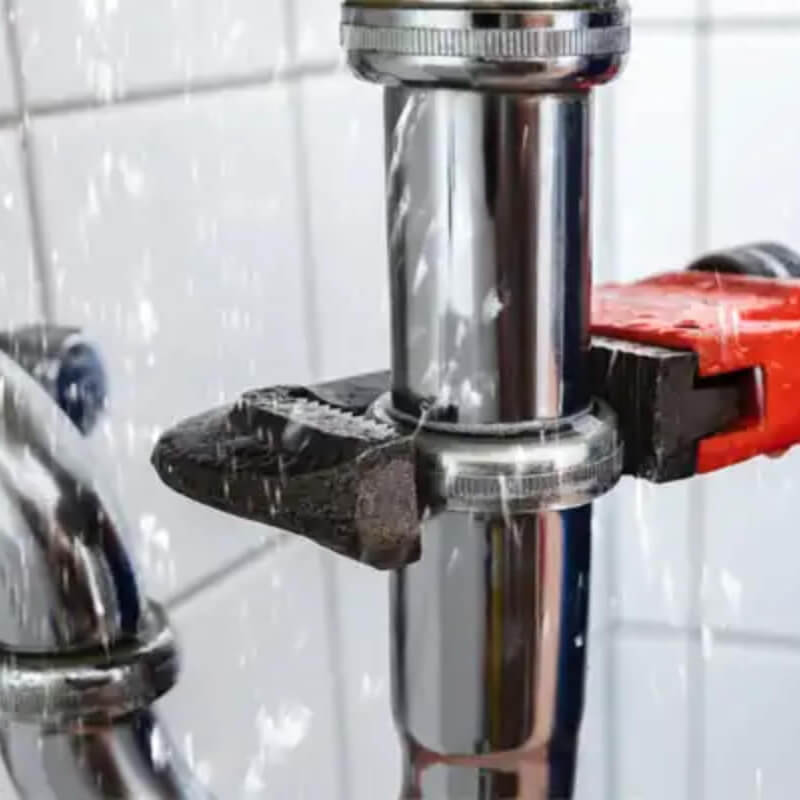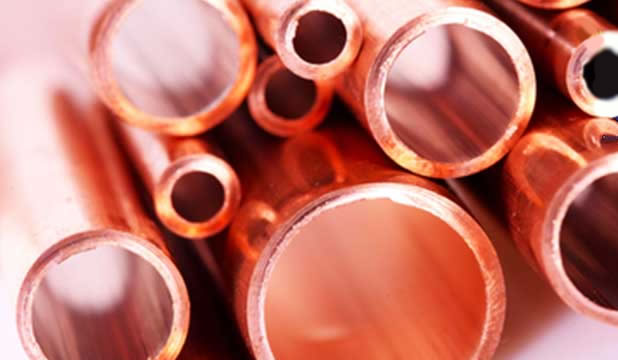Why Purchasing Repiping Services Is Crucial for Your Home's Pipes Health and wellness
Repiping solutions play a necessary function in maintaining a home's pipes health. Gradually, pipes can rust, leak, or come to be clogged up, causing potential risks and inefficiencies. Homeowners usually forget the indicators of wearing away pipes, which can lead to considerable damages. Recognizing the demand for repiping is essential. What aspects should home owners think about prior to making this investment? The answers might shock you.
Comprehending the Importance of Repiping
While numerous property owners might neglect the importance of repiping, it plays a crucial duty in maintaining the overall health and wellness of a pipes system. With time, pipelines can rust, create leaks, or become blocked with natural resource, leading to reduced water quality and circulation stress. Repiping addresses these concerns by replacing old, broken pipes with new, resilient materials, making sure a reputable supply of water and lowering the danger of pricey repair services related to leaks and water damage. Furthermore, contemporary piping materials are frequently extra ecologically pleasant and reliable, contributing to reduced power costs and boosted water conservation. Performing a repiping project can enhance a home's resale worth, making it a sensible financial investment for house owners. Inevitably, acknowledging the importance of repiping allows house owners to take positive steps in protecting their pipes systems and guaranteeing a secure, useful living environment for their family members.
Typical Indications That Suggest the Demand for Repiping
Property owners ought to be alert for sure indicators that suggest the requirement for repiping, as overlooking these issues can lead to more severe plumbing problems. One common indicator is the presence of constant leakages, which can recommend aging or degrading pipelines. Furthermore, a visible decrease in water pressure might show blockages or corrosion within the pipes system. House owners could also see blemished or corroded water, signaling pipe degradation. Unexplained water expenses that are markedly more than normal can likewise hint at leaks concealed within the walls. Furthermore, the growth of mold and mildew or mold in locations near plumbing components can recommend wetness issues coming from harmed pipes. Ultimately, if the home has old galvanized piping, it may be time to think of repiping, as this material is prone to rust and rust. Recognizing these signs early can assist keep a healthy and balanced pipes system.
The Dangers of Overlooking Pipes Issues
Disregarding plumbing problems can cause substantial water damages, which may endanger the architectural stability of a home. In addition, unsettled leakages can develop an atmosphere for mold and mildew growth, presenting serious carcinogen to owners. Attending to plumbing troubles promptly is crucial to guard both property and well-being.
Water Damage Concerns
When pipes issues go unaddressed, the threat of water damages rises substantially. Leaks, trickles, and splits in pipes can lead to considerable water intrusion, jeopardizing the structural honesty of a home. With time, also small leaks can trigger rot, mold development, and damages to walls and flooring, resulting in costly repairs. Water damage can also affect electric systems, creating harmful conditions. Homeowners often ignore the collective influence of little leaks, which can lead to widespread damages otherwise immediately attended to. Overlooking plumbing issues not only enhances the likelihood of immediate damages yet can additionally diminish building worth and pose long-lasting financial concerns. As a result, timely repiping services are necessary to stop water damage and keep a healthy home setting.

Health Hazards Rise
Unresolved pipes problems can bring about substantial carcinogen within a home. Infected water from rusty pipelines can present damaging germs and lead to significant illnesses. Mold and mildew development, frequently an outcome of leakages and excess moisture, poses respiratory system dangers and can cause allergies. In addition, stagnant water can draw in bugs such as bugs and rodents, which carry diseases that additionally jeopardize family members health. Neglecting these plumbing problems not just endangers the safety of homeowners but can also diminish home worth. Consequently, addressing plumbing problems through repiping solutions is necessary. Prompt treatment not just safeguards health yet likewise guarantees a safe living atmosphere, preventing much more extensive damages and expensive repairs down the line.
Various Kinds Of Piping Products
Piping products are a vital part in pipes systems, affecting durability, effectiveness, and total performance. Various options are available, each with special buildings and applications. Copper piping is understood for its durability and resistance to deterioration, making it a preferred choice for both cold and hot water lines. PVC (polyvinyl chloride) is lightweight, cost-efficient, and resistant to chemical damage, largely made use of for drainpipe and vent systems. PEX (cross-linked polyethylene) has actually obtained appeal as a result of its versatility and simplicity of setup, permitting less joints and potential leakage factors. Galvanized steel, though as soon as typical, is much less desirable today due to its susceptibility to corrosion and minimized water flow with time. Each material presents unique benefits and drawbacks, making it essential for home owners to seek advice from pipes specialists to figure out one of the most ideal option for their particular needs and problems. Choosing the best piping material can greatly impact the efficiency and security of a plumbing system.
The Repiping Refine: What to Expect
The repiping process begins with a detailed analysis of the existing pipelines to recognize problems and figure out the most effective strategy. Following this analysis, property owners will certainly need to select suitable replacement materials that match their plumbing needs. Ultimately, an overview of the setup procedure will certainly give insights into what to expect during this significant home enhancement.
Evaluation of Existing Pipelines

Selecting Substitute Materials
After examining the existing pipelines, property owners encounter the essential decision of picking proper replacement materials for their plumbing system. Typical options include copper, PVC, PEX, and CPVC, each with unique advantages and drawbacks. Copper is recognized for its toughness and resistance to deterioration, making it a long-lasting option. PVC is economical and lightweight, appropriate for drainpipe and air vent lines. PEX offers versatility and is resistant to scale and chlorine, making setup simpler in limited areas. CPVC is furnace pipe comparable to PVC yet can stand up to higher temperature levels. Home owners must take into consideration aspects such as budget plan, regional building codes, and the particular requirements of their pipes system when making this decision, making sure perfect efficiency and longevity for their home's pipes infrastructure.
Installation Process Overview
Repiping a home can be a considerable endeavor, however recognizing the installation procedure assists home owners get ready for what lies ahead. The procedure usually starts with a comprehensive evaluation of the existing pipes system to determine issue locations. Next, a thorough strategy is formulated, describing the essential materials and timelines. On the setup day, professionals will commonly start by turning off the water and draining pipes the existing pipes. They after that get rid of the old piping, which may include opening walls or ceilings for access. Brand-new pipelines are set up, guaranteeing they meet current plumbing codes. Finally, the system is evaluated for leaks, and any type of openings are repaired. Property owners can expect a efficient and tidy process, lessening disturbance to their lives.
Long-Term Conveniences of Repiping Your Home
While numerous property owners may forget the significance of updating their plumbing, the lasting advantages of repiping a home can substantially enhance both its worth and performance. Among the primary advantages is improved water quality. Older pipes may harbor pollutants and corrosion, while new piping warranties secure and clean water shipment. In addition, repiping can lead to enhanced water pressure, making daily tasks more reliable.
An additional advantage is the reduction in plumbing issues. Obsolete systems are vulnerable to leaks and ruptureds, which can cause costly repairs and water damage. By purchasing repiping, property owners can greatly decrease the probability of these troubles. Contemporary products made use of in repiping are more immune and long lasting to rust, expanding the life-span of the plumbing system.
Just how to Select the Right Pipes Service for Repiping
Just how can homeowners guarantee they pick the finest pipes solution for repiping? First, they should research local pipes firms, concentrating on those that specialize in repiping solutions. Reading online evaluations and testimonies can provide understandings into the high quality of solution supplied. It's crucial to inspect for proper licensing and insurance coverage, making certain the selected firm abide by local regulations.
Property owners must also request in-depth quotes from numerous service providers to compare prices and services offered. Engaging directly with potential plumbing technicians can help analyze their experience, communication skills, and determination to address concerns. Repipe Specialists. On top of that, requesting for references from previous customers can validate a firm's reliability and handiwork
House owners ought to think about the company's guarantee policies on products and labor, as this can mirror their dedication to high quality. By following these standards, house owners can make an educated selection, securing their pipes wellness through efficient repiping services.
Often Asked Inquiries
How much time Does a Typical Repiping Project Require To Full?
A common repiping project typically takes in between one to five days to complete, relying on the size of the home and complexity of the pipes system. Correct preparation and professional proficiency can affect overall duration substantially.
Will Repiping Boost My Home's Resale Value?
Repiping typically enhances a home's resale worth, as potential customers appreciate updated plumbing systems. This enhancement minimizes possible plumbing problems, making the home more eye-catching and possibly justifying a higher asking rate during sale negotiations.
Can I Remain in My Home Throughout Repiping?
During repiping, remaining in the home is commonly feasible, yet it might depend upon the extent of the job. House owners should plan for momentary interruptions check website and talk to contractors for certain plans and security considerations.
What Is the Typical Cost of Repiping a Home?
The typical price of repiping a home commonly varies from $4,000 to $15,000, depending upon variables such as the size of the residence, materials utilized, and labor expenses connected with the plumbing work. Repiping.
Do I Need a License for Repiping Providers?
A license is normally required for repiping solutions, as it guarantees conformity with regional building ordinance and guidelines. Homeowners should consult their regional authority or a licensed plumbing technician to establish specific permitting needs for their location.
Repiping solutions play an important duty in preserving a home's pipes wellness. While lots of homeowners might ignore the relevance of repiping, it plays an important have a peek here function in preserving the total wellness of a pipes system. House owners ought to be cautious for certain indicators that suggest the requirement for repiping, as ignoring these problems can lead to much more serious plumbing problems. While lots of house owners might ignore the value of upgrading their pipes, the long-lasting advantages of repiping a home can considerably enhance both its value and performance. A regular repiping task normally takes between one to five days to complete, depending on the dimension of the home and intricacy of the pipes system.